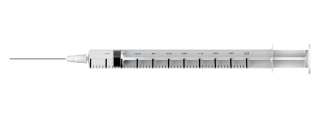How the Netherlands’ Life Sciences & Health Sector is Racing to Find Solutions to COVID-19
The highly-collaborative Life Sciences & Health cluster in the Netherlands is working feverishly around the clock to try and develop solutions for COVID-19
Collaboration is in the Dutch DNA and is perhaps more vital than ever in light of the current pandemic. Generally, a vaccine takes around 5 to 10 years to develop. However, the Dutch Life Sciences & Health sector is seizing every opportunity to accelerate this process, embracing partnerships to do it. The result is an impressive array of promising coronavirus initiatives powered by co-creation.
Strong candidate – fast-tracked
Janssen Vaccines, located in the Leiden Bio Science Park, is one of only eighty companies on the WHO list of potential vaccine candidate developers. Janssen is the pharmaceutical arm of US concern Johnson& Johnson – the largest healthcare company in the world – that, together with the US government agency BARDA, jointly allocated one billion dollars for the development of a COVID-19 vaccine. From twelve existing ‘vaccine constructs,’ the most promising candidate was selected and is based on the Ebola vaccine developed previously by the predecessor of Janssen, Dutch biotech company Crucell. They developed a smart solution that was subsequently applied to Ebola, HIV, and RSV vaccines providing a basis for the current research. This has enabled Janssen to fast-track COVID-19 vaccine development as the construct has already been proven safe for human testing.
Rapid advance toward coronavirus solution
Clinical trials planned initially for September have been brought forward and will now commence mid-July. The 2000-strong company has been working non-stop for over five months and liaising with the Leiden University Medical Centre and Leiden University, among others. Bart van Zijll Langhout, campus-leader of Janssen, coordinates collaboration amongst the three organizations and is of the opinion that the connections were already excellent and now, in these challenging times, truly outstanding: ‘We are not competing with each other, we are together in a race against the virus.’
Harboring hope for COVID-19 solutions in the Netherlands
AbbVie, a global leader in developing innovative antiviral therapies, has entered into a collaboration with Rotterdam-based Harbour BioMed to develop a novel antibody therapeutic to prevent and treat COVID-19. AbbVie will support Erasmus University Medical Center, Utrecht University, and Harbour BioMed through the preclinical activities, while simultaneously undertaking preparations for later stage preclinical and clinical development work. Research leaders Frank Grosveld from Erasmus Medical Center in Rotterdam and Berend Jan Bosch from Utrecht University originally developed the antibody for previous SARS virus variants.
Laser precision virus testing
‘We are permanently racing,’ states Vincent Laban, one of the four founders of Dutch med-tech startup Spektrax. Virus testing is a crucial part of handling the COVID-19 pandemic. Barely a few months old, Spektrax is working closely with Amsterdam University Medical Center to develop a test that can reveal in just minutes whether someone is infected with the virus. Current laboratory tests take around 4 hours. A hand-scanner is employed to analyze mucus samples using laser to reveal the virus’s presence by highlighting specific molecules.
Calming the storm
The Dutch firm AcertaPharma, now a division of healthcare giant AstraZeneca, has developed treatments for certain types of Leukemia using the active ingredient acalabrutinib. The drug slows the production of white blood cells and, consequently, the immune response and the associated cytokine storm a complication of COVID-19 and other respiratory diseases. After researchers in the US noticed that patients benefitted from treatment with the drug, parent company AstraZeneca commenced a clinical study to determine whether it could be beneficial to seriously ill Corona patients. The ultimate goal is to reduce the need for intubation and subsequently to save lives.
Research synergies between business and universities
A newly established public-private partnership has been formed combining the vaccine development technology from leading translational research and development vaccine institute Intravacc, the viral vector technology, and animal technologies from Wageningen Bioveterinary Research (WBVR) and coronavirus expertise from Utrecht University. The goal of this partnership is to develop an intranasal vaccine to protect humans against COVID-19. The advantage of a nasal vaccination is that it induces both mucosal and systemic immunity, whereas an intramuscular vaccination primarily induces an antibody response. Ludo Hellebrekers DVM, Director of WBVR, stated: ‘Intravacc, WBVR and Utrecht University create major synergy by combining distinct, complementary expertise and competencies. A promising collaboration!’
Collaboration in public-private partnerships is strong in the Netherlands
What is evident from these stories is that collaboration is often vital to success. Thankfully, the Dutch Life Sciences & Health sector is a highly connected collaborative community where public-private partnerships are easily formed. As Bart van Zijll Langhout, Janssen’s VP of Strategic Alliances, confirms, it’s not something you can achieve by working in isolation.
Source: Invest in Holland

